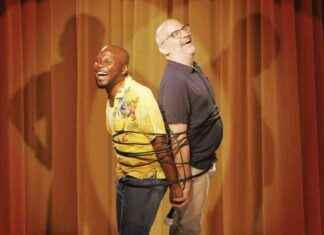When the words of the socialist baron Javier Lambán are still hot, assuring that Spain “would have done better” if Javier Fernández had been the leader of the PSOE, for which he practically had to apologize, assuming that they were “unfortunate” and “inopportune “, the former president of the government Felipe González has charged against important recent decisions of the Government of Pedro Sánchez such as the entry into force of the law of only yes is yes, the replacement of the crime of sedition by that of aggravated public disorder or the appointment of the former Minister of Justice Juan Carlos Campo for the Constitutional Court.
In an interview on Antena 3, the former head of the Executive has affirmed that the law of only yes is yes, whose entry into force has caused a chain of reductions in sentences for sexual abusers, should have been rectified immediately and has insisted that “when one makes a mistake, he has to correct and not ask others to correct what he does”. In this regard, Gonzalez has considered that the law is “poorly made” and has rejected that the decisions adopted by the judges, in application of the law, have to do with macho attitudes as defended by Podemos. “It is absurd; it is a manufacturing defect”, he has replied to the arguments of the Minister of Equality, Irene Montero, who has promoted the norm.
“Whoever makes a mistake has the obligation to rectify… They said that rectifying is wise, even if it is foolish to have to do it daily, and sometimes it happens,” Felipe González said before adding that “the law should have been rectified immediately “.
On the other hand, he has rejected that the crime of sedition for which the leaders of the procés were convicted can be equated to public disorder and has denied that this conforms to European legislation, as defended by the Sánchez Executive. “This is not public disorder. Therefore, if they have tried to classify what happened then, the classification is neither in line with reality nor does it have any comparison with any of the European legislation,” he has ruled.
Regarding the appointment of the former Minister of Justice Juan Carlos Campo as a magistrate of the Constitutional Court, criticized both by the opposition and by Unidas Podemos, he has said that he does not like it and that “it is certainly not aesthetic”, although he has made it clear that it is not unconstitutional because it does not break any rule.
On the other hand, the former president has called on politics to recover citizen coexistence because, as he recalled, “there is no more valuable asset than living together in peace and in freedom.” “I would tell (the politicians) not to allow coexistence to be spoiled, to hold firm to the idea of ??living together while respecting each other,” he added, alluding to the recent riots in Congress.
In this sense, he has warned that there is a “very polarized” policy and that “for the first time” he sees that this phenomenon of polarization “goes down from politics towards society”, for which he has asked to “reduce the tension” with the use of the word as a weapon of dialogue.
Asked about the role that King Juan Carlos played in Spanish democracy, he stressed that “he was constitutional king before the Constitution was approved”, giving up “all the power he had” from the moment he appointed Adolfo Suárez and ” It made the whole transition so much easier.”








